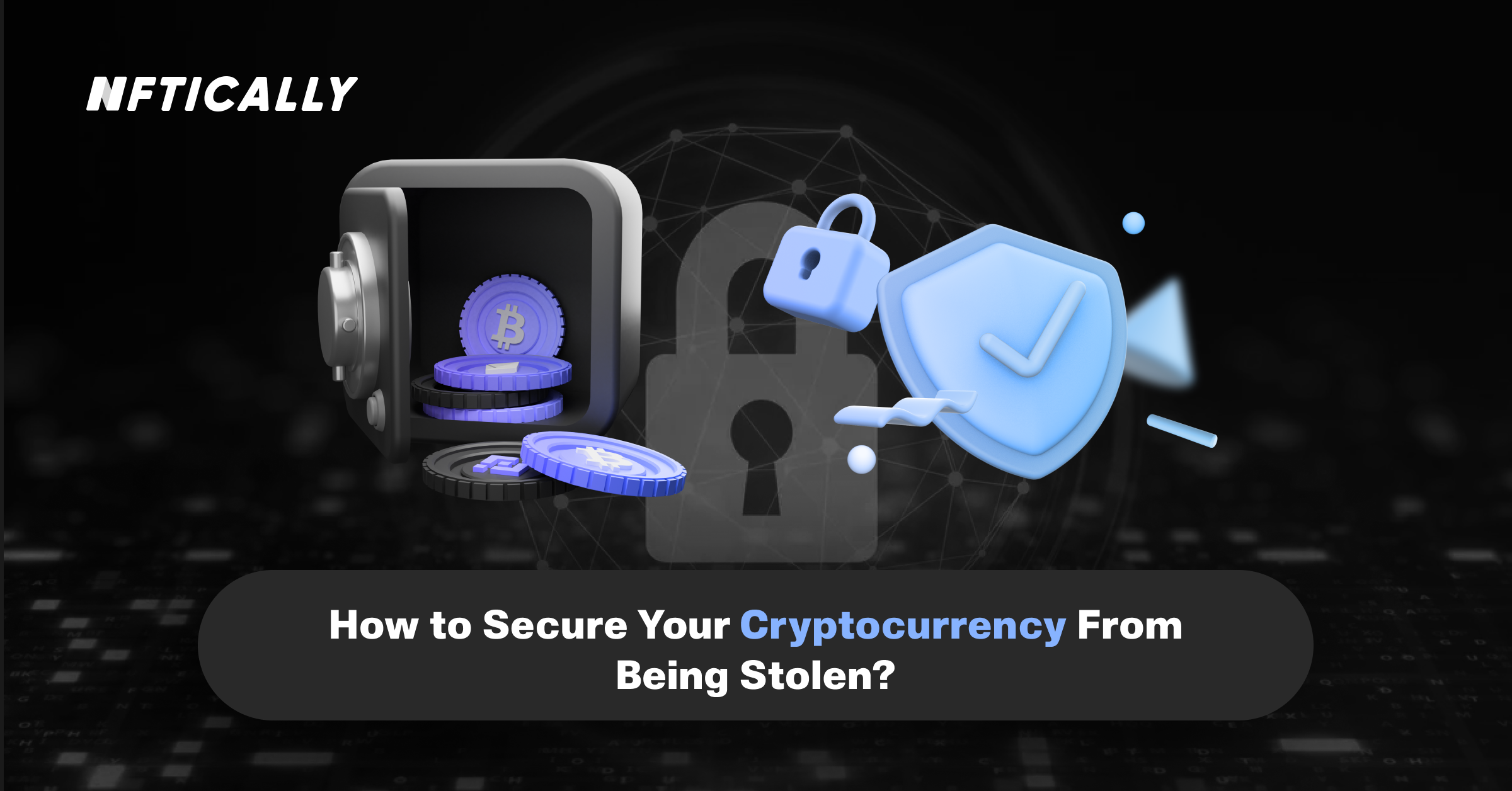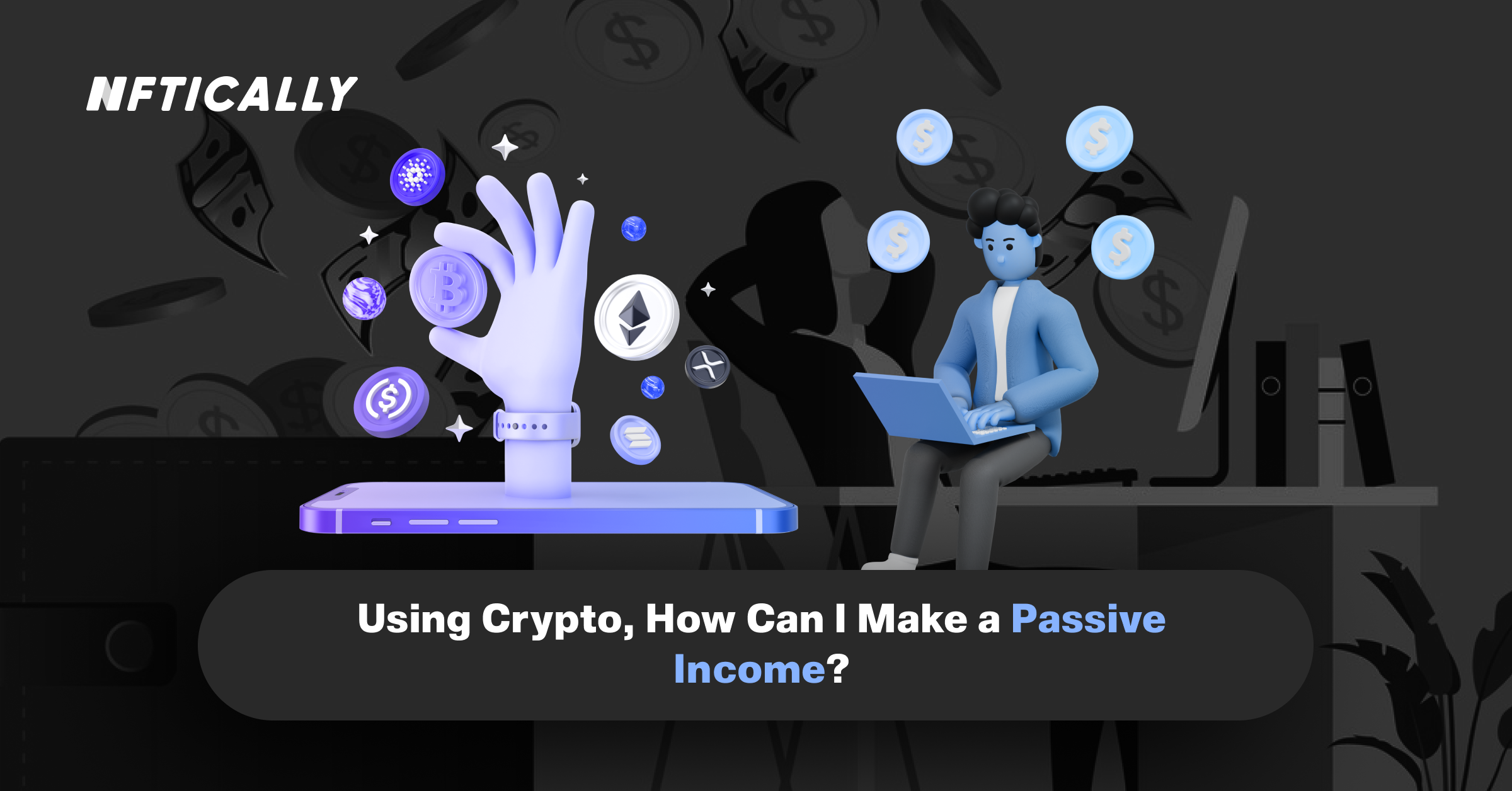- Cryptocurrency
- July 12, 2022
How to Secure Your Cryptocurrency From Being Stolen?

Cryptocurrencies should be the primary focus of everyone who owns them. After all, as your cryptocurrency develops, a substantial amount of money is at risk. Cryptocurrency, by its very nature, is simple to steal, and securing it may also be challenging. How to Secure Your Cryptocurrency from Being Stolen?
As there is no financial institution that provides a layer of security for cryptocurrencies, such as Bitcoins, you will need to install additional levels of protection to safeguard your holdings.
Unfortunately, IT security is a real-world problem that affects not just the cryptocurrency business but every company that relies on technology. A quick Google search for recent breaches of huge global organizations reveals that any company can become vulnerable to hacking.
There is no doubt that a thief will try to steal your cryptocurrencies. Keeping your digital currency assets safe involves being careful with exchanges and avoiding fraud.
How Do Hackers Steal Cryptocurrency?
Cryptocurrency owners who keep their money on an exchange or mining marketplace are particularly vulnerable to hacking. Late last year, a hacker gained access to NiceHash and stole almost $60 million in Bitcoin.
Because of the amount of digital money taken in, the NiceHash breach was an extremely unusual incident. There is a correlation between the price of Bitcoin and other currencies and phishing assaults. Phishers often seek admin passwords and private keys to wallets.
Fake cryptocurrency applications that look and function like legal exchanges may deceive people attempting to buy digital money. Poloniex, for example, has a bogus Android app in the Google Play Store. Before it was taken down, there had been 5,500 downloads.
The risk of theft is rising as the value of cryptocurrencies rises.
Here are seven strategies to keep your money safe and sound
1. Consider device security
There have been no financial institutions to secure cryptocurrencies. To keep your cryptocurrency secure, you need to think of it like other digital data, such as internet passwords and credit card numbers.
One of the most crucial goals is to safeguard your digital money at all costs. Using multifactor authentication for all your online login accounts is the most excellent defense against fraudulent programmes like this.
The following are a few levels of device security:
- Scan your gadgets using an antivirus programme (PC, Mac, mobile device, etc.)
- Never click on anything questionable in your email.
- Every online account you have should have two-factor authentication enabled.
- Concealed storage and portable gadgets
- Make regular backups of your computer and other electronic devices.
You should protect your cryptocurrency accounts as you secure your personal information.
2. Private key safety
The first line of protection against bitcoin theft is your private key. You can only access your digital wallet with the private key, a 256-bit number. Your private key is the key to all you own; thus, you should guard it with the utmost care.
When your private key is stolen, your bitcoin wallet is no longer yours, and you might be out all your money.
Use the same security methods to protect your device to safeguard your private key. Two-factor authentication, strong passwords, encrypted hardware, or not keeping your private key online are all options for protecting your private key.
3. Investigate exchanges
For those of you who have forgotten the NiceHash hacking story, here it is again: This is why it’s so essential to thoroughly study exchanges to ensure the safety and security of your bitcoin. You must be aware of and comprehend two sorts of transactions.
- Centralized Exchange
When you use a centralized exchange, you’re putting your confidence in the exchange with your bitcoin and private key. You might think of it as an IOU system that gives the exchange control over your money’s security. You’ll be glad you have this backup if your gadgets are compromised. Centralized exchanges, on the other hand, are excellent targets for cyberattacks.
- Decentralized Exchange
If you’re using a decentralized exchange, you’ll have total control over the security of your bitcoin. Although some exchanges are not as user-friendly, you can be sure that your private keys are safe, even if you are a rookie crypto trader.
It’s critical to choose the correct currency exchange. Whether the exchange is centralized or decentralized, it would help if you learned about the security mechanisms. A decentralized exchange is likely the best option for preventing the theft of your money.
4. Safeguard passwords
Some crypto services allow you to log in with only your username and password to avoid the hassle of keeping track of a private key. As a result, it’s much easier for someone to steal your money.
For example, a hacker may get access to your email and then ask the crypto service you use for a password reset. Thieves might access your cryptocurrency account and take your money if the password changes.
The best strategy to protect your digital money against email hacking is to set up multi-factor authentication for your digital wallet’s email account. In addition to the password and SMS text, the provider you pick should have two-factor authentication. Additionally, Google Authenticator is a simple and effective security precaution.
5. ICO scam
Companies may obtain cryptocurrency capital via initial coin offerings or ICOs. Software businesses have become more common to raise millions of dollars via ICOs. However, the proliferation of bogus ICOs has also become a way for financial theft.
Hackers would pose as legitimate firms to raise money using a fictitious website. Everything seems to be in order, so investors will transfer cryptocurrencies like Bitcoin or Ethereum to an unaffiliated digital wallet to support the initiatives.
If you want to use your bitcoin to invest in a tech startup, verify the wallet address with the actual firm. If you don’t, your money will be gone for good.
6. Escape Scams
Researching bitcoin exchanges is essential, but there are other services to consider. Crypto fraudsters use the exit scam to steal your money and disappear.
A new crypto-related firm may sprout up with a credible website and operate for a short time. They may shut and vanish from the web, however. Withdrawing money.
Dark web exit frauds are widespread. If you’re experimenting with bitcoin in the dark corners of the Internet, be especially vigilant before transmitting money.
7. Store your crypto offline
One of the best methods to keep your cryptocurrency safe for the long term is to keep it in an offline wallet. “Cold storage,” more often referred to, protects your money from many internet thefts by storing it offline.
If you want to keep your digital money in cold storage, you may either use a hardware wallet or write down your private key on paper and store it safely away. To protect your private key from hackers, viruses and other internet hacking or phishing difficulties, you should keep it offline.
Wrapping Up
It’s not as difficult as you think to keep your bitcoin safe. Your assets will only be accessible if you put in place numerous layers of protection and do extensive research on the crypto services you utilise. Is there a way to protect your digital wallet?
However, you can keep up with NFTICALLY’s activities by joining our discord and telegram channels.
Related Posts

How To Analyze The Crypto Market
Crypto requires familiarity with numerous tools. These resources can assist you in gaining a clear picture of where the market stands and in making accurate forecasts. You should know that the cryptocurrency market is quite…
- August 8, 2022

Using Crypto, How Can I Make a Passive Income?
Crypto new to you? If you’re trying to diversify your sources of income, here are seven different methods to earn crypto in the background. Earning money passively is an excellent way to build and preserve…
- July 28, 2022
Recent Posts
- Revolutionizing AI Clones: Sunny Leone Teams Up with Kamoto.AI for an Unprecedented Debut
- The Evolving Landscape of NFTs: A Glimpse into 2024
- NFT Trends to Shape 2024: A Deep Dive into the Future of Digital Assets
- The Gaming Revolution: NFTs Level Up the Player Experience
- NFTs and Intellectual Property Rights: Navigating Legal and Ethical Challenges
Recent Comments
Archives
- January 2024
- December 2023
- November 2023
- October 2023
- September 2023
- August 2023
- July 2023
- June 2023
- May 2023
- April 2023
- March 2023
- February 2023
- January 2023
- December 2022
- November 2022
- October 2022
- September 2022
- August 2022
- July 2022
- June 2022
- May 2022
- April 2022
- March 2022
- February 2022
- January 2022
- December 2021
- November 2021
- October 2021
- September 2021
- August 2021
- July 2021
Categories
- $ECOM
- 3D NFTs
- AI Characters
- Airdrpos
- Bitcoin
- Blockchain
- Blockchain Technology
- Buy NFTs
- Buying
- Crypto Collectibles
- Crypto Wallet
- Cryptocurrency
- Cryto Mining
- Digital Art
- Digital Assets
- Ethereum
- FAQs
- Features
- Generative Art Nfts
- ICO
- Invest in NFT
- Learn
- Metavatars
- Metaverse
- Minting
- NFT
- NFT 2.0
- NFT Art
- NFT Art Finance
- Nft auction
- NFT Communities
- NFT Crypto
- NFT crypto art
- NFT Drops
- NFT Games
- NFT gaming
- NFT Marketplace
- NFT Memes
- nft project
- NFT Royalties
- NFT Staking
- nft stocks
- NFT Store
- NFT Taxes
- NFT Trading Cards
- NFT Wallet
- NFTICALLY
- NFTs
- Non fungible tokens
- Non Fungile Tokens
- Ordinal NFTs
- Physical Assets
- Press Release
- Selling
- Solution
- Stablecoins
- Store
- Tensor Nfts
- Top Cryptocurrencies
- Uncategorized
- Web 2.0
- Web 3.0
- white label nft marketplace

